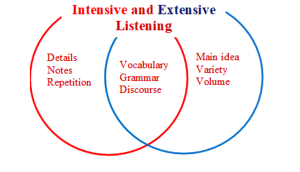One of the frequent challenges for teachers, even ones with experience is how to manage time in the classroom. One may well ask, why time management is so important. Effective time management is crucial to provide quality education. In fact, teachers don’t really have enough time to teach considering the breaks, learner attention span (which is typically half an hour or less); moving between classrooms for various activities and downtime between lessons and activities (Mehta, 2019). Continue reading
Category Archives: Tips
Managing Disruptive Behaviour
While teaching young people is often not easy, managing classrooms with students of mixed abilities and diverse backgrounds can be really challenging. Perhaps one of the biggest challenges is getting a class to be quiet. Picture this: it’s the first day of school and you are required to be the homeroom teacher for a class of boys in their early teens. Boys at this age can be a handful!
Getting to Know Each Other Better in the Language Classroom
In my very first TESL Ontario blog post, I shared an activity to help teachers remember their students’ names.1 It also happens that the activity helps students learn each other’s names and, as a result, helps to build community. By addressing each other by name, students are more likely to build bonds and feel valued. Building community is a process, however, and although this activity is a good start, teachers can incorporate other activities throughout the term or academic year to make the process memorable.
The following activity is one I use to help strengthen students’ sense of community by letting them share something about themselves that highlights a positive attribute. This activity also gives the teacher the opportunity to do the same.
Listening in Language Learning Part II: Extensive Listening
 This two-part blog focuses on tips for improving your students’ listening skills with both intensive and extensive listening methods. If you haven’t yet, go read Part I: Intensive Listening, then come back to read Part II. In this second part I will focus on extensive listening by offering tips for extensive listening practice, some resources for teachers to utilize, and some overall listening goals for teachers to bear in mind.
This two-part blog focuses on tips for improving your students’ listening skills with both intensive and extensive listening methods. If you haven’t yet, go read Part I: Intensive Listening, then come back to read Part II. In this second part I will focus on extensive listening by offering tips for extensive listening practice, some resources for teachers to utilize, and some overall listening goals for teachers to bear in mind.
Extensive Listening
Just like extensive reading, this activity involves listening to ‘self-selected’ listening material slightly below the student’s proficiency level and in large quantities. The focus is on overall understanding because the task is more relaxed and self-directed, with learners listening to longer audio or video selections without necessarily trying to understand every word. The goal of extensive listening is to develop overall listening comprehension skills, get used to the sounds and rhythm of speech, and become more familiar with the language in a natural way.
Continue reading
Busting the myths of ESL instruction

Busting some of the myths and assumptions that English language instructors might have, we’re looking back this week at some older blog posts that are still timely. Are there other myths that you have become aware of in your own experience of teaching? After you read these blogs, return here to share in the comments below.
Active Learning Strategies for Post-Pandemic Zoom Breakout Rooms
Many educators are now familiar with the black screens and mute students on Zoom and its breakout rooms. While having student cameras turned on can certainly have its own merits, the black screens do not necessarily mean that the students cannot or will not contribute. I have found the following three activities helpful in engaging students regardless of having their cameras on or off.
Continue readingAI in the Classroom: The New, New Normal?
In December of 2022, Cecilia Aponte-de-Hanna brought the discussion of artificial intelligence or “AI” to the TESL Ontario community with her post, AI in the Classroom: Love It or Hate It – It’s Here. Cecilia piqued our curiosity by showing us an example of a test text generation and suggested three ways that she was considering using AI with her lessons.
Continue readingStart Your Own ESL Business
If you do not have a permanent, year-round teaching contract in Ontario, I am sure that you have considered alternative careers or income streams from time to time. We all have our own reasons for our professional situations whether they are extrinsic or intrinsic. As I see it, there are five paths forward for short-term, contract ESL instructors in our sector:
Continue readingHumor in the ESL Classroom
Learning English (or any new language) requires student focus, repetition, and practice, so it’s easy to see why students may often feel disengaged or even bored in the classroom. This is why ESL teachers love to try off-the-wall ways to liven up their classes and infuse some enthusiasm into the topic. Continue reading
Stand Out and Stay Ahead in the TESL Market

Even during prosperous times ESL professionals in Canada encounter precarious employment: contract work, limited hours, and no/minimal benefits (Breshears, 2019). TESL graduates often struggle as they enter the field with limited knowledge of how to navigate the diverse segments of Canada’s TESL market (Wu, 2019).







